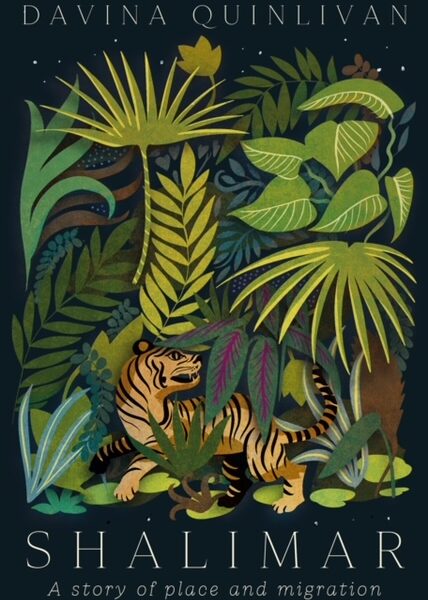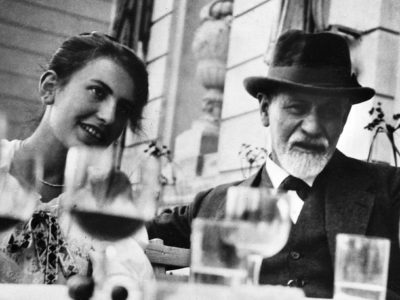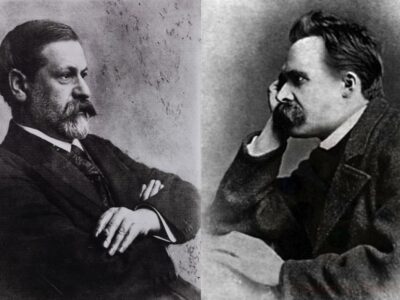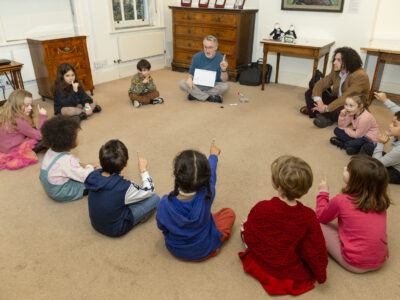
- This event has passed.

The first of an ongoing series of online seminars with Davina Quinlivan, which engage with creative and critical questions relating to life-writing, memoir, travel, autobiography and experimental writing.
Participants will receive access to the recording, 24 hours after the event and can playback for a month.
Her mouth parts. Her mouth is the shape of a rhyme, like my father’s mouth opening as he ate the forbidden mangoes in India. Her son’s trespass. Now the fruit is a rock, her skin against its brittle surface. Her skin against the rocks, the rocks against the sky. She has travelled hundreds of miles and her body carries the weight of time and space as she continues to bend backwards and prepares to press her lips against this weighted frame, this measure of being, this ancient rock, this great, immense boulder wrought of calcite, or aragonite and dust, this stone they call the Blarney (From Shalimar)
Right at the very beginning, two decades ago, I started writing about the body and the senses in art and cinema during my undergraduate years. I found this beautiful language through images before I found my own route into storytelling. I realised, after all, I was in love with the idea of those existing stories as a way of mediating my own, I did not hide behind them, it was a form of knowledge I was absorbing in my bones.
Questions about identity creeped into academic language like the slow spread of a cherry stain on my lips. Now all that is left is that stain.
In this seminar, we are going to explore women’s creative non-fiction across a wide range of examples from Deborah Levy’s living autobiography to Tessa McWatt’s Shame on Me, Voyager (Nora Fernandez), Constructing A Nervous System (Margo Jefferson), Crying in H Mart (Michelle Zauner), Nina Mingya Powles (Bodies of Water) and my own memoir, Shalimar: A Story of Place and Migration. We will look at how these stories are constructed through writing styles, the themes of identity and trauma, emotion and memory. What makes non-fiction a creative endeavour, which rules are broken, which accuracies retained? What are the poetics and politics of such bodies of work and their embodied subjects?
You will be invited to think conceptually about the relationship between writing and the body. We will ask what is at stake when writers choose to construct creative non-fiction narratives around illness, trauma or grief, and what part these narratives might play in the journey towards recuperation and healing, or recovery from physical or psychological crisis. We will explore the cultural value of these varied forms, how to write about health and the mind, our lived environments and our inner worlds.
This class is aimed at all levels of ability and it is truly designed to inspire creativity rather than to exclude.
While I encourage participants to bring along their own ideas, it might be useful to read some of the work that is available to download free, which you can find below.
Davina Quinlivan is a Lecturer in the Department of English and Creative Writing at The University of Exeter and Writer in Residence with Literature Works/Quay Words and the Royal Devon and Exeter Institution Spring 2023. Her memoir, Shalimar: A Story of Place and Migration, was recently published with Little Toller Books (2022) and her creative non-fiction essays and short stories have appeared in The Willowherb Review, Litro, Arty, The Clearing, Caught by The River, and in collaboration with The Countryside Alliance and The Museum of English Rural Life.
Her work has featured as part of programmed, public events with The Wallace Collection, The Wellcome Trust, The Urban Tree Festival and The Serpentine Gallery. For several years, she has run the popular seminar series F: For Flânerie at The Freud Museum and is part of the founding teaching ensemble at The New School of the Anthropocene, alongside Marina Warner and Robert Macfarlane.
Shalimar was selected by Spiracle Audiobooks as one of stories which would launch their new indie-press focused platform in 2022. Prior to moving to Exeter, she taught for 12 years as a Senior Lecturer in The School of Art, Kingston University. She is currently working on a follow-up to Shalimar entitled Waterlines, on rivers and migration, trauma and healing, and a novel set between Cornwall and the Black Sea.
Suggested reading with free access:
Deborah Levy, Extract from The Cost of Living
Nina Mingya Powles, ‘The Safe Zone’, Granta
Davina Quinlivan, ‘Silverwood’: An Extract from Shalimar: A Story of Place and Migration, The Willowherb Review
Virginia Woolf, ‘On Being Ill’
‘My Unlived Life’ podcast with Miriam Robinson






